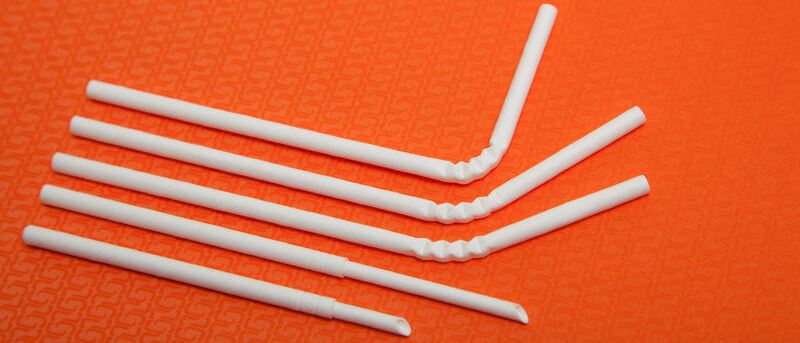The ban on single-use plastic in the EU will come into force during 2021. As deadlines loom across the continent, many brands have already switched – but some have been slower to react.
In this article, we examine how sourcing a straw supplier is set to change, and we explain why the process of switching will take longer than many brands realise. Finally, we outline the key steps you need to take right now to maintain compliance in the European Union.
Forget Everything You Know About Buying Straws
The mass production of plastic straws has been around since the 1960s, and in that time, very little innovation has occurred. Naturally, machines have gotten faster, manufacturing processes are smoother, and F&B brands now have a wider choice of suppliers around the globe.
But at the end of the day, it’s still a plastic straw, the same as it was sixty years ago.
So, when it comes to buying those straws for drinks packaging, brands have become accustomed to a certain way of doing things. It’s simple supply and demand. And with huge demand, prices can be negotiated, volumes increased, and suppliers switched with no real disruption to the supply chain or consumer experience.
However, there’s a revolution taking shape that threatens to turn this entire approach on its head. The EU single-use plastics ban (and other legislation like it) could soon see demand for high-quality paper straws outpace supply — and F&B brands must move fast to adapt and comply with new regulations.
As the market becomes aware of the urgency to switch, big-name brands have already taken steps to prepare for the change. Yet some are operating under the assumption that switching to paper straws will be every bit as easy as choosing a new plastic straw supplier. It won’t, and here we explain why.
Why Switching to Paper Straws is a Long Process
1. It’s a New Market
The main challenge for F&B producers is that the old-school approach of sourcing straws from whoever’s cheapest is following the plastic straw itself in being seriously outdated — at least in the short term.
While plastic straw manufacturing is an established and competitive marketplace, sustainable paper straw manufacturing is relatively new. The small number of converters on the market are still in the process of scaling their operations, meaning there’s not currently as much capacity to fulfil big orders on tight deadlines. In fact, at Tembo Paper, our production line was at full tilt from the start of 2021.
This leaves brands in a precarious position. You can’t simply switch suppliers and find the volume you need quickly, so you must work proactively with the available paper straw manufacturers to plan for large orders. Armed with a long-term commitment and clear projections on volume, converters can invest in state-of-the-art production lines to fulfil your paper straw needs ahead of the deadline.
2. There’s a Limited Scope for Quality
By meeting the 2021 deadline, you won’t just be complying with EU legislation, you’ll also be meeting growing consumer demands for sustainable packaging.
But to do this, and do it right, you must focus on the quality of the paper straw in question.
As it stands, there’s currently no industry-standard for a sustainable paper straw, so if you value quality (and brand reputation), this adds a considerable amount of due diligence into the mix. For starters, you need to ensure that the straws are food-safe certified, that they’ve undergone consumer testing, and that they’re fully biodegradable.
All in all, it can take months to get a paper straw certified and on your packaging.
3. Longer Lead Times for Production
Whether you opt for an outside supplier, or you decide to bring straw production in-house, switching from plastic to paper straw manufacturing is a complex and lengthy process.
- First, it requires the sourcing and implementation of specialist machinery;
- Then you have to train staff to run these new production lines efficiently;
- And, at the same time, you need to identify and deal with reputable and reliable suppliers for both the paper and glue components of the straw.
This is why there’s so little capacity on the market at the moment. Converters are slowly but surely overcoming these obstacles, but unless you work with a recognised paper straw specialist, you could face delays and dead-ends as you attempt to ramp up production.
The Risks of Leaving it Late
The impending legislative deadline is the clear driver for change. After all, you don’t want to end up on the wrong side of the law. But the high profile nature of the EU directive also means that an increasing number of consumers now expect brands to deliver eco-friendly alternative packaging as standard.
If you leave it late when switching to paper straws, you could be forced to accept lower quality to meet deadlines and demand — and this could affect your brand’s reputation.
Ultimately, you need a straw that won’t compromise the consumer’s experience of your product, and the quality of paper straws produced in markets outside of Europe and North America often don’t stand up to scrutiny. In China, for example, they use short fibre paper and add mineral oil to make the straws rigid, but this falls way below acceptable food safety and biodegradability standards.
The Key Steps for Switching to Paper Straws
To make the switch a smooth and successful one, you need to:
- Identify your needs in terms of production, product development, and order volume now;
- Recognise the timescales involved in scaling straw production to meet those needs;
- Start the conversation with a recognised paper straw industry specialist.
This is where Tembo Paper can help. We are uniquely positioned as the only tech supplier with a dedicated paper straw production line, allowing us to validate the real-world end product in addition to the machine technology.
While other machine suppliers might make recommendations on materials, we specialise in co-product development, joining you for every step of the journey. From product validation to quality control, food safety control, compostability testing, and the installation of a full production line (manufacturing to wrapping and packing), we cover every base, minimising sensitive external factors in the process.
Make the Switch with Tembo Paper
Like brands, many plastic straw manufacturers are only now getting to grips with the need for change.
This has given us a head-start on the competition. Our proven and unique vertical paper spiralling machines allow us to produce industrial paper straws in bulk (telescopic, straight, or U-shaped), with a much smaller footprint and lower production costs. However, we’re focused now on providing machines to the market, enabling brands to launch and operate their own paper straw production line. And we’re here to help you plan for (and succeed in) a world without plastic straws.


